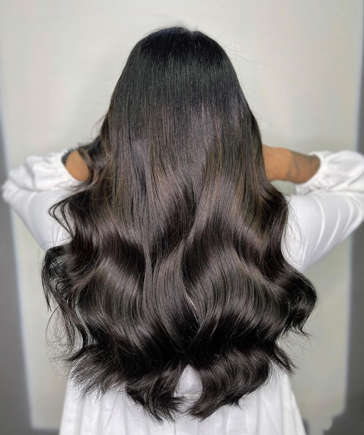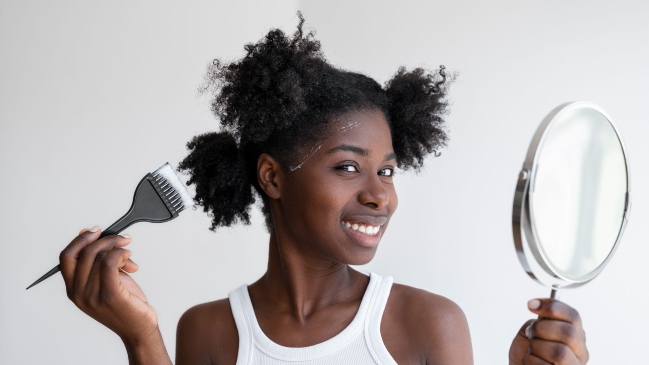Scalp oiling has been practiced for centuries as a natural method to nourish the scalp, promote hair growth, and maintain healthy strands.
However, finding the right oiling frequency can be key to maximizing benefits without causing buildup or irritation.
Here’s how often you should oil your scalp to support stronger, healthier hair.
Benefits of scalp oiling
Oiling the scalp offers multiple benefits, including:
• Moisture retention: Oils help seal moisture into the scalp, preventing dryness and flakiness.
• Nourishment: Natural oils like coconut, castor, and jojoba oil are rich in vitamins and fatty acids that strengthen hair follicles.
• Improved circulation: Massaging oil into the scalp stimulates blood flow, which can encourage hair growth.
• Scalp health: Oiling can reduce dandruff, dryness, and inflammation, creating a healthier environment for hair growth.
How often should you oil your scalp?
1. For dry, curly, or coarse hair:
• Frequency: 2-3 times per week
• Reason: This hair type tends to be drier and benefits from frequent hydration and nourishment. Use heavier oils like castor oil or coconut oil for deeper moisture retention.
2. For normal to oily hair:
• Frequency: Once a week
• Reason: Excessive oiling on already oily hair can lead to buildup and clogged follicles. Opt for lighter oils like argan or jojoba oil.
3. For fine or thin hair:
• Frequency: Once every 7-10 days
• Reason: Fine hair can get weighed down easily, so use lighter oils sparingly, such as grapeseed or almond oil.
Best practices for scalp oiling
• Warm the oil: Slightly warm the oil before application to improve absorption.
• Massage gently: Use circular motions to stimulate circulation without causing scalp stress.
• Leave the oil in: Allow the oil to sit for at least 30 minutes or overnight before washing out.
• Avoid over-oiling: Excess oil can clog hair follicles and attract dirt.
Conclusion
The ideal scalp oiling routine depends on your hair type and scalp condition. Consistent, balanced oiling can strengthen hair, reduce breakage, and promote overall scalp health, making it a powerful step in your hair care regimen.




